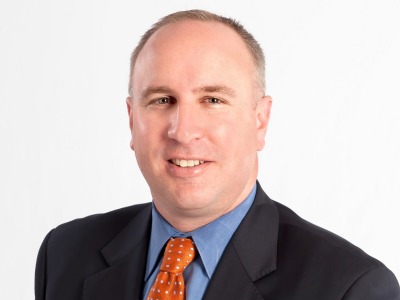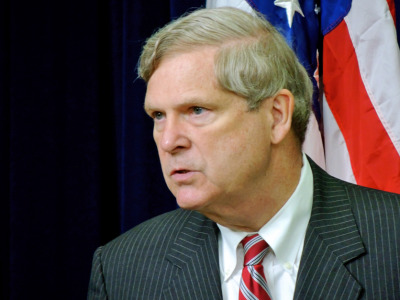A disappointing turnout and the Iowa Democratic Party’s historic caucus counting debacle are fueling calls to scrap the state’s first-in-the-nation status, which for decades has guaranteed a prominent place for agriculture and biofuel policy in national politics.
State party leaders said before the Monday night caucuses that they were gearing up for the largest turnout ever, a potential sign of enthusiasm for defeating President Donald Trump in November. Instead, the showing was well short of the record 240,000 people that turned out in 2008 and instead more in line with 2016’s showing of 171,000.
In another sign that enthusiasm waned this year, about 35% of caucus-goers were first-time attendees, down from 44% in 2016 and 57% in 2008, according to entrance polls.
Meanwhile, the party didn’t even release partial results from the caucuses until late Tuesday afternoon.
"I think the Iowa caucuses are dead, dead, dead. I don't even think that's a discussion anymore," David Axelrod, a former adviser to President Barack Obama, said on CNN.
Senate Minority Whip Richard Durbin, D-Ill., told MSNBC that Iowa’s population is not representative of the party’s diversity and the caucus process “is a quirky, quaint tradition that should come to an end. … We’ve got to have a means for people to express themselves that is reliable. Unfortunately, the caucus system is not.”

Monte Shaw, IRFA
That would be a major blow to the biofuels industry and to farm groups that have long used the caucuses to get the ears of presidential candidates as well as sitting presidents who are running for reelection.
"What it provides is an opportunity for (candidates) to meet farmers, meet people who are engaged in the rural economy and really learn about it. … You can’t spend much time in Iowa without learning about it,” said Monte Shaw, executive director of the Iowa Renewable Fuels Association.
He said President Donald Trump “would not have known what the (Renewable Fuel Standard) was if he hadn’t campaigned in Iowa.”
Oilman George W. Bush won the Iowa caucuses in 2000 and went on to return to the state frequently in his first term and to advocate for creation of the Renewable Fuel Standard in 2005 and its expansion in 2007.
In 2020, many of the Democratic candidates toured ethanol plants, guests of a group called Forces on Rural America that is co-chaired by Patty Judge, a former Iowa agriculture secretary and lieutenant governor.
Among the five leading candidates, South Bend, Ind., Mayor Pete Buttigieg brought up ethanol policy in a debate, Minnesota Sen. Amy Klobuchar used the ethanol issue in an ad, and former Vice President Joe Biden also talked about the issue, said Shaw.
At the urging of former Agriculture Secretary Tom Vilsack, an ex-governor of Iowa, and other farm policy advocates, many of the candidates also put out detailed agricultural and rural development proposals that went well beyond ethanol policy.
Interested in more coverage and insights? Receive a free month of Agri-Pulse or Agri-Pulse West by clicking here.
Most of the candidates proposed to slow or reverse consolidation in agribusiness and pledged to use farm bill conservation programs to pay farmers to curb climate change. Several candidates also either proposed ways to boost commodity prices or farm program benefits.
“Any knowledgeable observation would be that one of the goals of the Democrats this year was to learn how to compete better in rural America,” Shaw said.
Losing Iowa’s first-in-the-nation status would be bad for agriculture, said Pam Johnson, a former president of the National Corn Growers Association who served as a campaign surrogate for Klobuchar.
Agriculture has a strong voice in Iowa, and getting in front of the candidates is important for the industry, she said. “I think it really would make a difference.”
But Vilsack said he thinks Democrats will continue to pay attention to rural concerns and farm policy because the party fears a repeat of the 2016 election. The party’s nominee, Hillary Clinton, lost Iowa, Michigan, Pennsylvania and Wisconsin to Trump amid an especially poor showing in rural areas. By contrast, Obama carried states such as Iowa, in part, by holding down GOP margins in rural areas.

Former Ag Secretary Tom Vilsack
“If Iowa retains its first-in-the-nation status or does not, I believe Democrats will still talk to and about rural places and people because the memories of the party’s loss in 2016 and the reasons for it are still front of mind for Democratic leaders,” Vilsack said.
Interested in more coverage and insights? Receive a free month of Agri-Pulse or Agri-Pulse West by clicking here.
Iowa’s GOP senators, Chuck Grassley and Joni Ernst, and Republican governor, Kim Reynolds, reacted to the criticism of the caucuses with a joint statement defending their value.
“The face-to-face retail politics nature of Iowa’s caucus system also encourages dialogue between candidates and voters that makes our presidential candidates accountable for the positions they take and the records they hold,” the statement said, adding that “the process is not suffering because of a short delay in knowing the final results.”
Iowa's congressional Democrats — Representatives Cindy Axne, Abby Finkenauer, and Dave Loebsack — also issued a joint statement Tuesday calling the caucuses "the foundation of how our parties and our nation select their next president," The statement went on to say the trouble in quickly determining a winner "is disappointing and requires accountability and transparency moving forward."
Shaw, who participated in a GOP caucus in West Des Moines on Monday, said the more complicated process on the Democratic side contributes to the difficulty of reporting results. Democrats use a two-tiered process; supporters of candidates who don’t meet a threshold for “viability” are allowed to move to another candidate in a second round.
Republicans have had their own problems although the GOP process works more like a simple straw poll; the votes of caucus-goers are tabulated for each candidate. In 2012, Mitt Romney was erroneously declared the winner over Rick Santorum by eight votes on caucus night, but the final count favored Santorum by 34 votes.
Shaw expressed confidence the caucuses would return in 2024. Because of the personal campaigning required, he and other supporters of the caucuses say they make it possible for candidates to have a better shot at becoming president even if they are not wealthy enough to afford major ad campaigns or have the backing of party elites.
"If you don’t want the guy with $50 billion and the party establishment behind him, then you go to some place like Iowa," he said.
For more news, go to www.Agri-Pulse.com.


